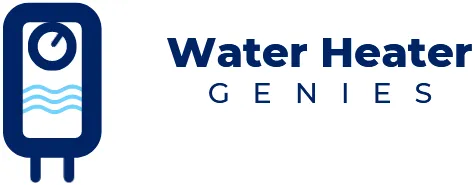Types of Water Heaters:
Which One is Best for Your Home?
Buying a new water heater may seem overwhelming due to the plentiful options available such as traditional tanks, solar and tankless units, with varying energy efficiency levels and hot water capacity. Our guide provides an in-depth review of each type to help you make an informed decision for your family's needs. Keep reading to be prepared and make the right choice. Each type of water heater has its own pros and cons that you should think about before deciding which one to go with.

Traditional Storage Tank Water Heaters
Tank-style water heaters are a widely used type of appliance that heats and stores water in insulated tanks, using gas, electric or oil as an energy source. Moreover, these units allow hot water to flow effortlessly out of the tap whenever required.
Pros:
Lower cost
Longer warranty periods than other types.
Ease of maintenance.
Cons:
The high operating expenses associated with low energy efficiency are a major drawback of traditional water heaters.
This type of heater is also limited in terms of capacity, leading to a shortage of hot water when needed.
There's always the risk of water damage if the tank leaks or fails.

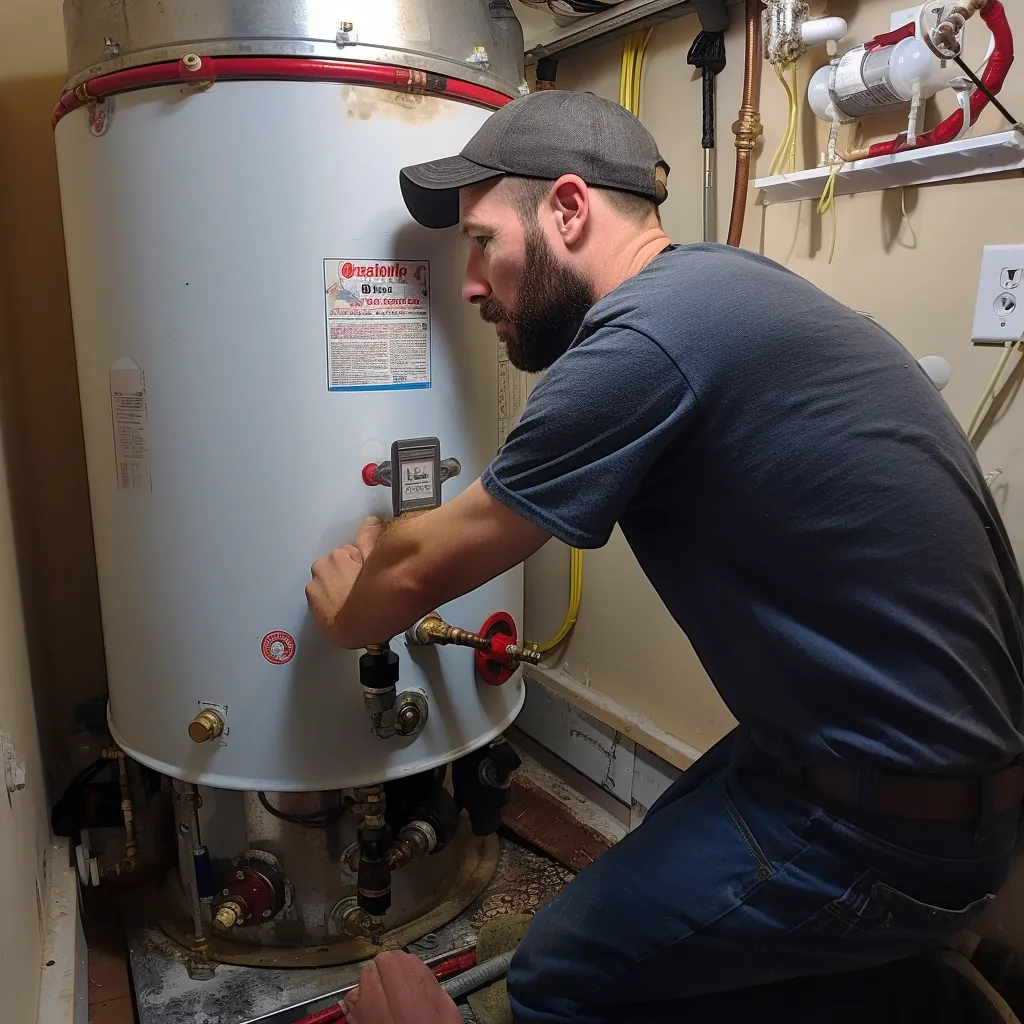
Tankless Water Heaters
When compared to traditional water heaters, tankless models are a modern and efficient way to provide hot water. Instead of heating and retaining water in a large tank, they heat it on demand, saving energy and space. The upfront cost may be higher, but the long-term utility savings make up for it.
Pros:
Tankless water heaters are an excellent choice for homeowners because of their ease of installation due to their compact design.
High energy efficiency ensures consistently low monthly bills, allowing you to enjoy hot water without worry.
You never have to worry about running out of hot water, as long as there is a demand for it.
Tankless water heaters have a longer life expectancy, making them a smart and economical investment in your home.
Cons:
Tankless water heaters pose a higher initial cost in comparison to traditional storage tank water heaters.
Venting complications may arise from the need for additional piping or ductwork in small spaces.
It's important to keep in mind that tankless water heaters are not suitable for high demand applications due to their limited capacity, leading to limited hot water availability per use.
Heat Pump Water Heaters
When it comes to heating water, heat pump water heaters stand out for their high efficiency and affordability. By using a small compressor to move heat from the air, they can work wonders in providing hot water without costing you much. And what's more? Thanks to their electricity-free operation, they come in handy during power outages.
Pros:
Utility bills for a given month can be reduced due to higher energy efficiency.
This is made possible through a heat pump water heater that harnesses renewable energy from the air.
Even during power outages, this method can continue providing hot water.
Cons:
Heat pump water heaters have a higher initial cost in comparison to traditional water heaters.
They might require more ventilation and space, which can create challenges during installation.
Their capacity may be limited, leading to less availability of hot water per usage.
.
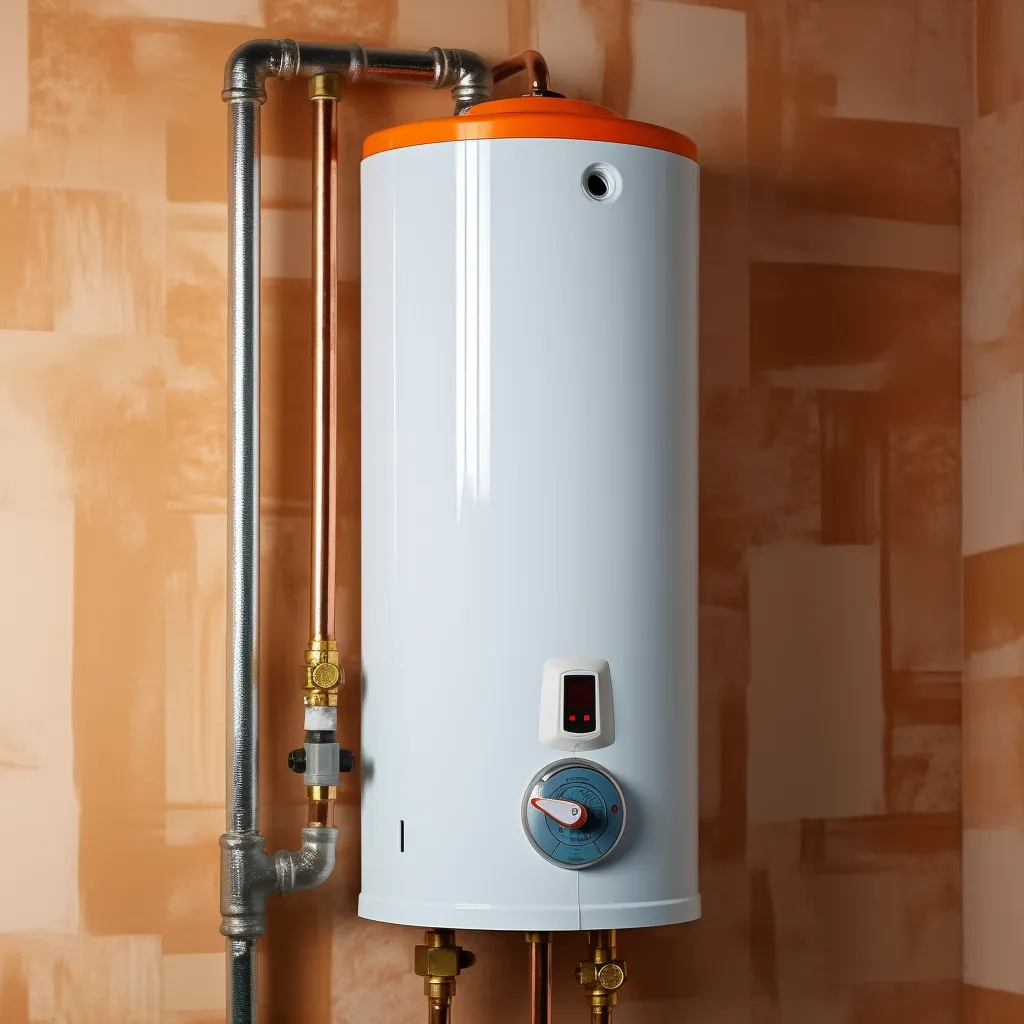
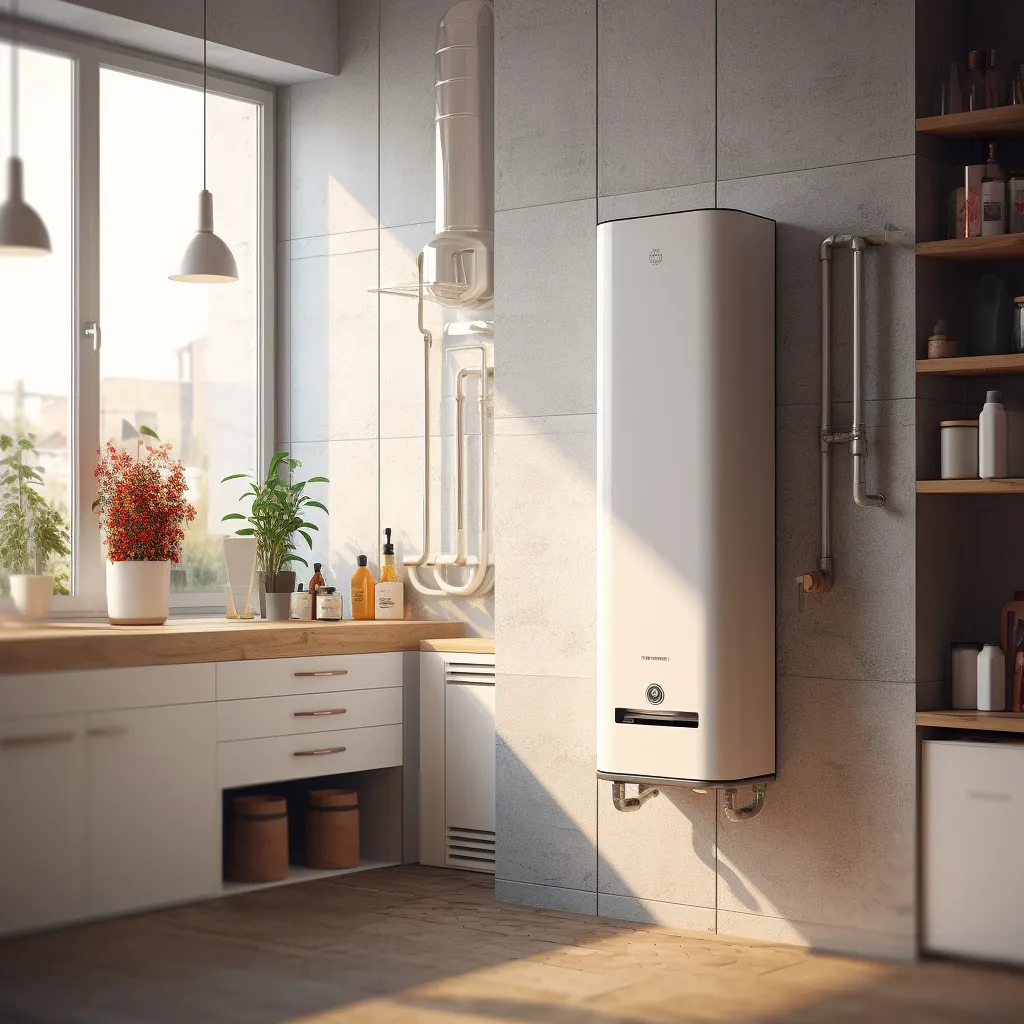
Heat Pump Hybrid Water Heaters
Heat pump hybrid water heaters combine the best aspects of conventional storage tanks and heat pumps, achieving high efficiency and lower operating costs. Although they may require more upfront investment than traditional water heaters, they're easily superior in functionality and effectiveness.
Pros:
These units achieve reduced monthly utility bills with increased energy efficiency thanks to advanced technology.
By using only renewable energy from the surrounding air, electricity is conserved.
These units have the potential to supply hot water during power outages, making them even more valuable.
Heat pump hybrid water heaters boast a lengthier lifespan compared to traditional storage tank heaters.
Cons:
Compared to conventional storage water heaters, tankless units have a higher initial cost.
They may also require more ventilation and space, which could lead to installation issues.
The limited capacity means there is a finite amount of hot water for each use.
There is a risk of water damage if the tank fails or leaks.
The heat pump component can cause higher noise levels.
In warmer climates, there can be issues with heating and cooling.
Some utility rebates or incentives may not be available, depending on your location.
Solar Powered Water Heaters
Solar-powered water heaters are an excellent way to reduce your monthly utility bills and take advantage of renewable energy. There are two primary types available, namely active and passive systems. By heating stored water, they offer a simple way to save money.
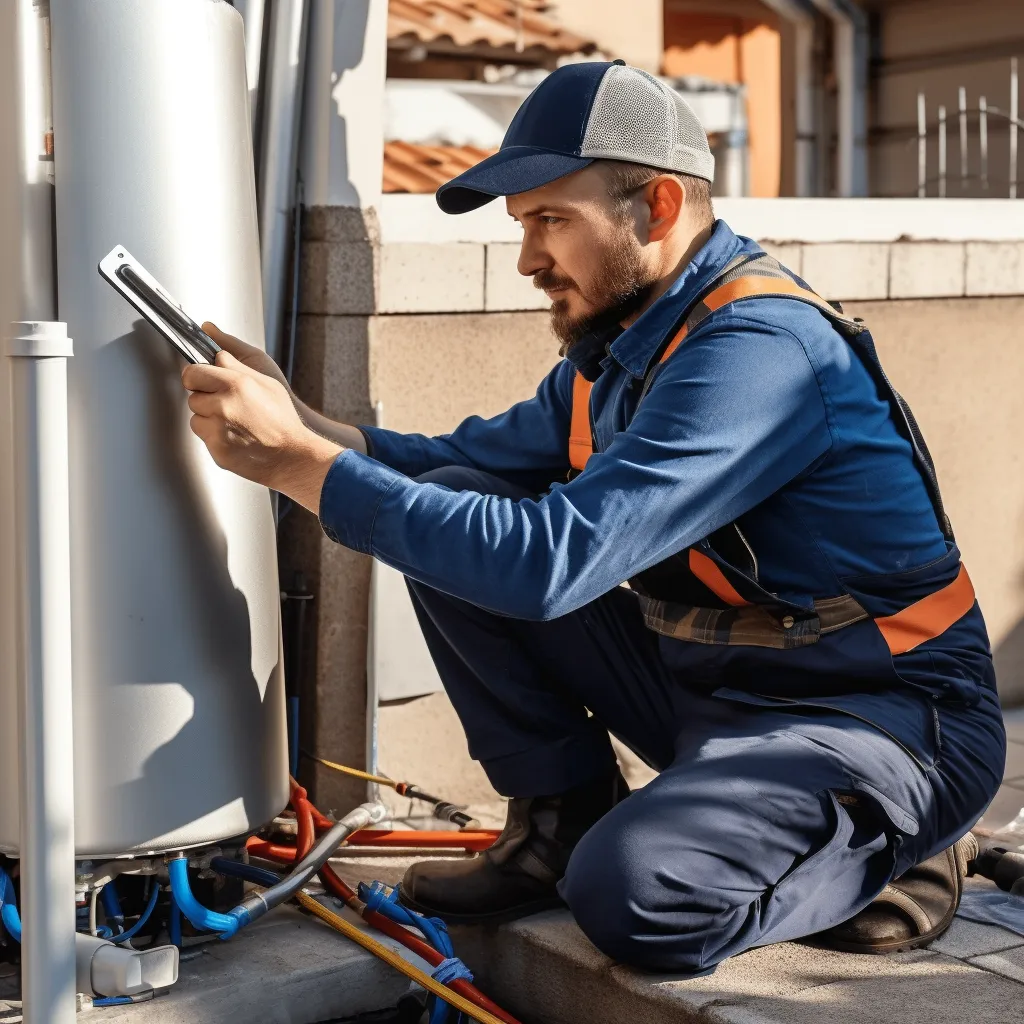
Active Systems:
Active solar-powered water heaters function with the help of pumps that transfer hot fluid from collectors to a storage tank for later use. They are more efficient than passive solar thermal systems, and generate considerable amounts of hot water.
Passive Systems:
Passive solar water heaters use solar power for heating water by transporting heated fluid from collectors to a storage tank by means of natural convection. These systems have a low installation and maintenance cost. Compared to active systems, however, they offer a smaller quantity of hot water.
Pros:
These units are highly efficient, resulting in significant cost savings on monthly energy.
They use renewable energy from the sun, making them eco-friendly.
They have a longer lifespan compared to traditional water heaters.
Cons:
These models are more expensive initially in comparison to traditional storage tank heaters.
They may require additional space and equipment, which could lead to installation complications.
If the solar panels become faulty or damaged, there is a risk of water damage.
Some models have limited capacity and thus offer less hot water availability per use.
Depending on geographical location, solar-powered water heaters may not qualify for certain utility rebates and incentives or may not be effective due to limited sun exposure.
In warmer climates, they may experience potential heating and cooling issues, whereas in colder climates they risk freezing.
Maintenance is required regularly to ensure optimal performance.
If the unit is damaged, repair or replacement is more costly.

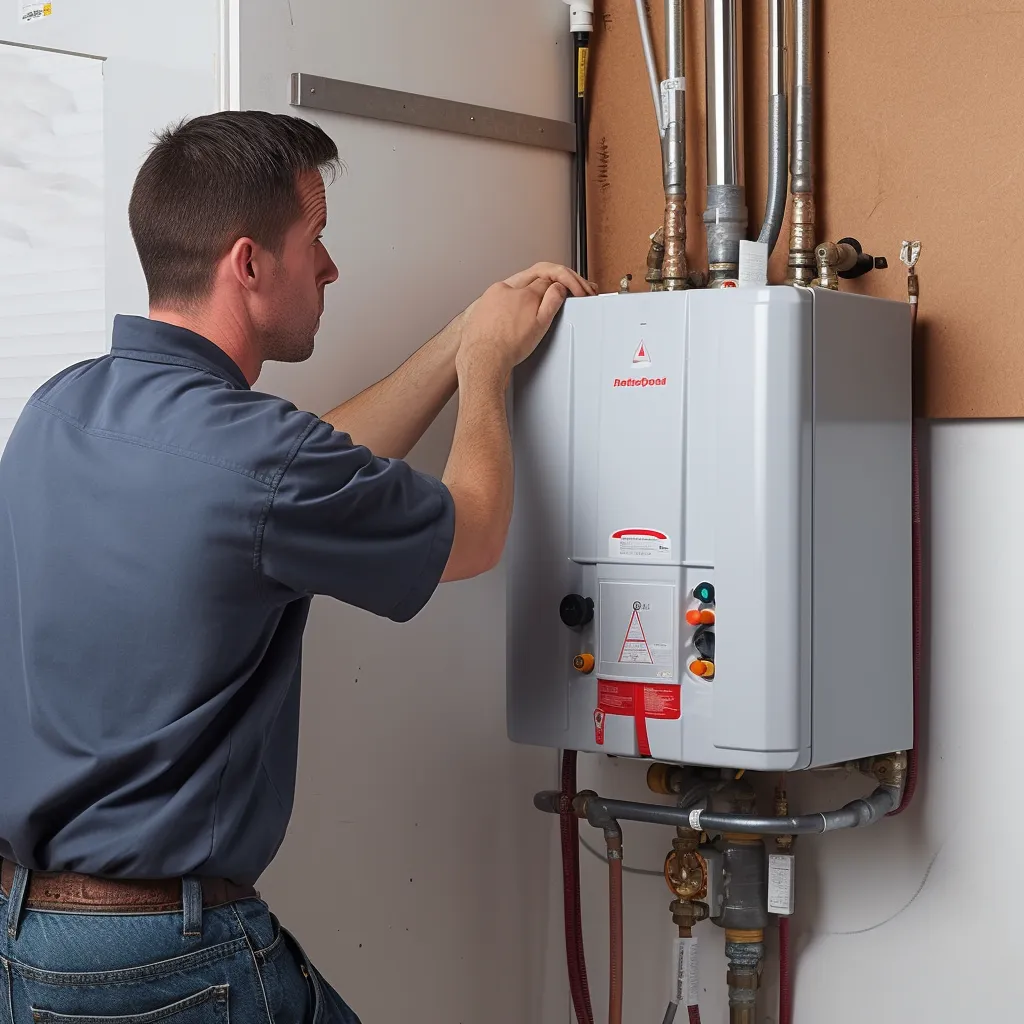
Point-of-Use Water Heaters
Point-of-use water heaters provide hot water on demand in a compact and efficient system that's ideal for small spaces or for those needing to avoid the costs and inefficiencies of traditional storage tanks. With lower energy usage, these heaters can also help shrink monthly bills over time.
Pros:
These units possess exceptional energy efficiency that contributes to lower monthly utility expenses.
Their compact size permits hassle-free installation and maintenance, even in confined spaces.
They boast a longer life expectancy compared to storage tank heaters.
Cons:
Point-of-use heaters come with a higher initial cost, and may require extra ventilation and installation space.
These heaters have lower hot water capacity, which means that hot water availability can be limited per use.
The risk of water damage is higher for tankless heaters, due to the possibility of tank failure or leaks.
These heaters also operate at higher noise levels as a result of the heating component.
These models may not qualify for utility rebates or incentives, and are not recommended for high-demand areas.
It's important to note that point-of-use heaters may cause heating and cooling issues in warmer climates.
Water Heaters With Hydronic Boilers
Hydronic boilers can efficiently circulate heat throughout your space by using water instead of air. They are capable of handling hot water for domestic use and space heating in colder climates, and can also be paired with tank water heaters to meet your hot water needs at a more affordable rate.
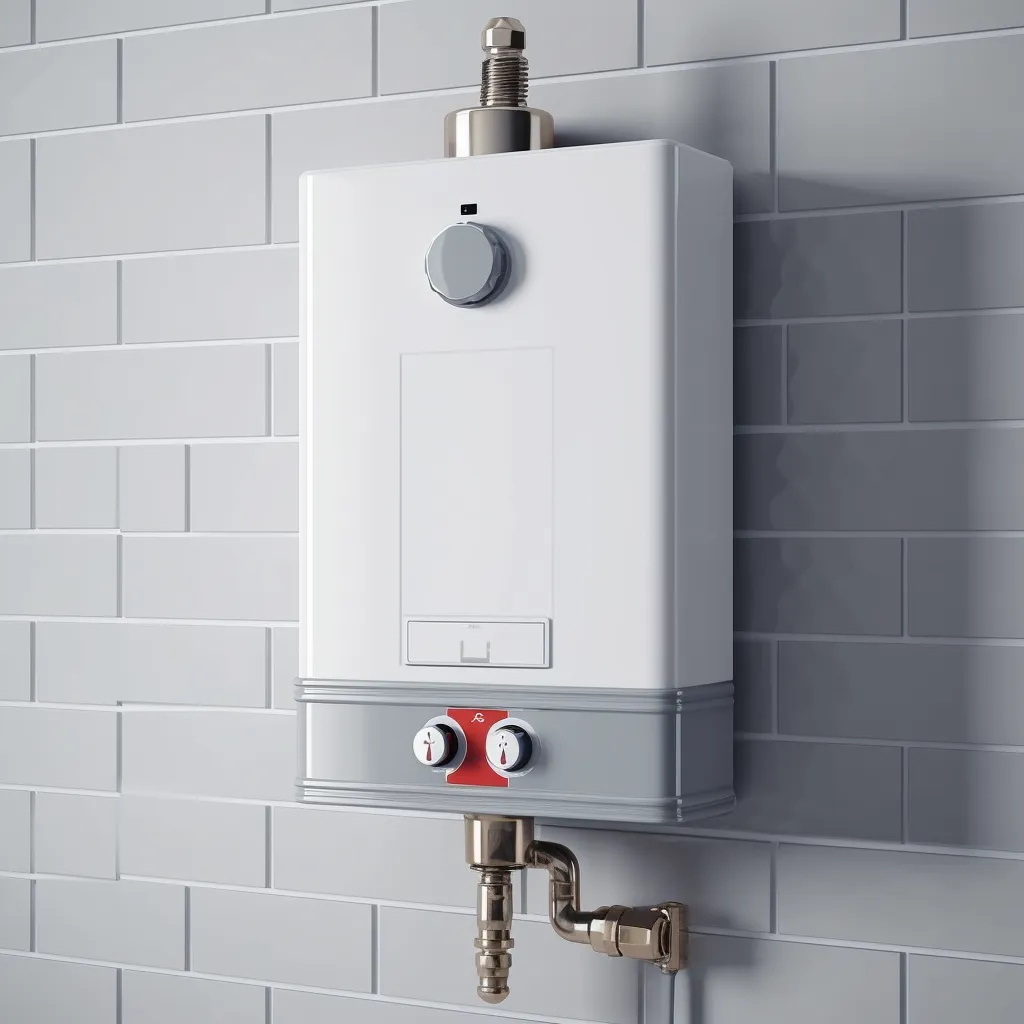
Pros:
High efficiency results in lower monthly utility bills.
This system provides space heating and domestic hot water.
Its compact design makes it easy to install even in tight spaces.
Compared to traditional tank water heaters, it has a longer life expectancy.
Cons:
Water heaters that include hydronic boilers have a higher initial cost in comparison to traditional storage models.
They also have limited capacity, thus offer less hot water per use.
The heater component of these models may generate noise during operation.
They might not meet eligibility criteria for some utility rebates or incentives.
In regions with high hot water demands, these models may not be the optimal choice.
Repairing or replacing damaged units can result in substantial expenses.
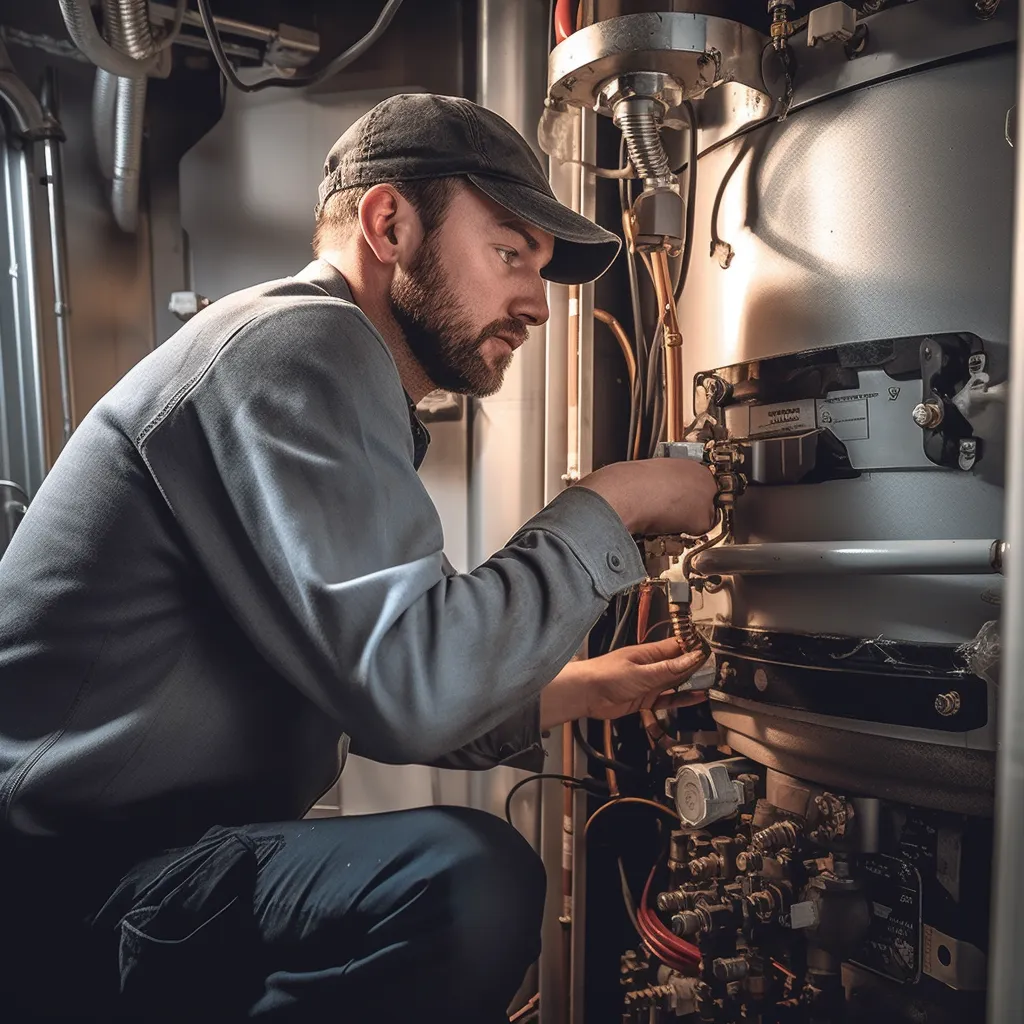
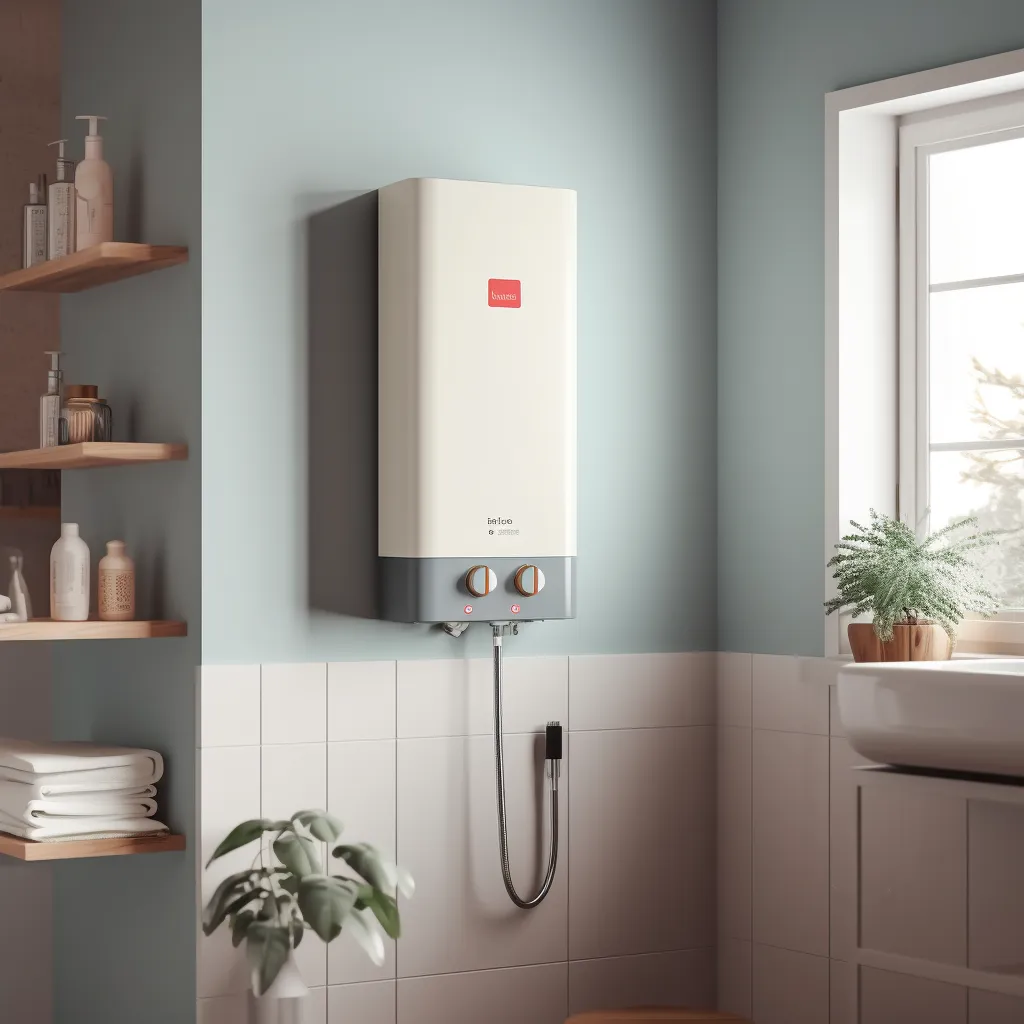
Smart Water Heaters
Stay ahead in the game by using smart water heaters- the latest technology for heating water. Manage your hot water consumption and expenses from anywhere through Wi-Fi enabled thermostats. Control temperature settings via your phone and reduce monthly costs with energy-saving options like vacation mode.
Pros:
The Wi-Fi enabled thermostat offers remote control for the water heater through smartphones or other gadgets.
It features energy-saving modes, such as vacation mode, for reducing monthly energy bills.
The model's compact size makes it easy to install and maintain in tight spaces.
It also offers a longer life expectancy compared to traditional storage tank heaters.
Cons:
Compared to traditional storage water heaters, these models cost more.
Some utility rebates or incentives may not be applicable.
They may require additional software updates for compatibility with newer devices.
If the Wi-Fi connection is not secure, there may be potential security risks.
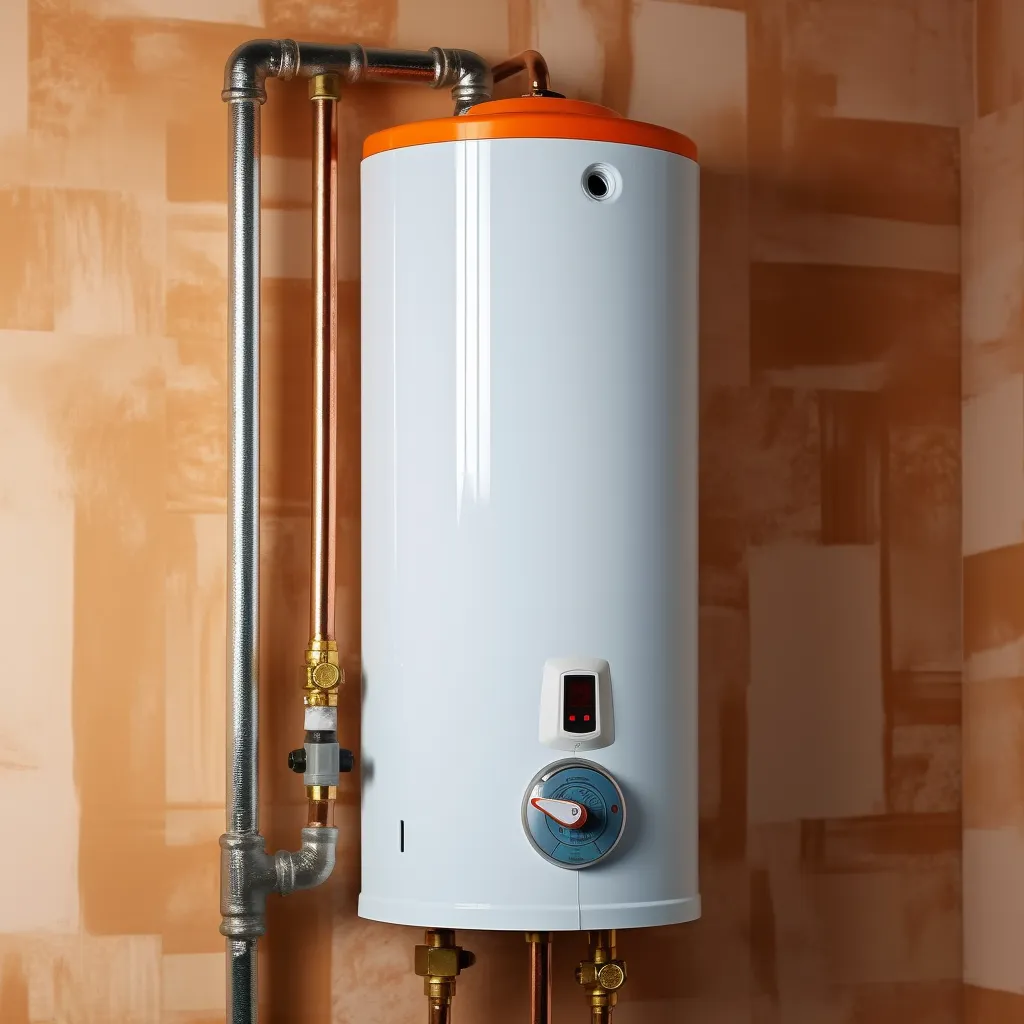
Condensing Water Heaters
Condensing water heaters combine the characteristics of both tankless and conventional storage tank water heaters. These innovative models use advanced technology to extract heat from exhaust gases, resulting in better performance and cost savings.
Pros:
This product uses renewable energy from the surrounding air, making it highly energy efficient.
Not only does this translate to lower utility bills, but it also has a longer life expectancy than traditional tank water heaters.
It can provide hot water during power outages.
Cons:
Condensing water heaters are more expensive than traditional storage water heaters.
They require more space and ventilation, making installation a bit more complicated.
These heaters have limited capacity, which limits the hot water available per use. In the event of a tank failure or leakage, significant water damage problems can arise.
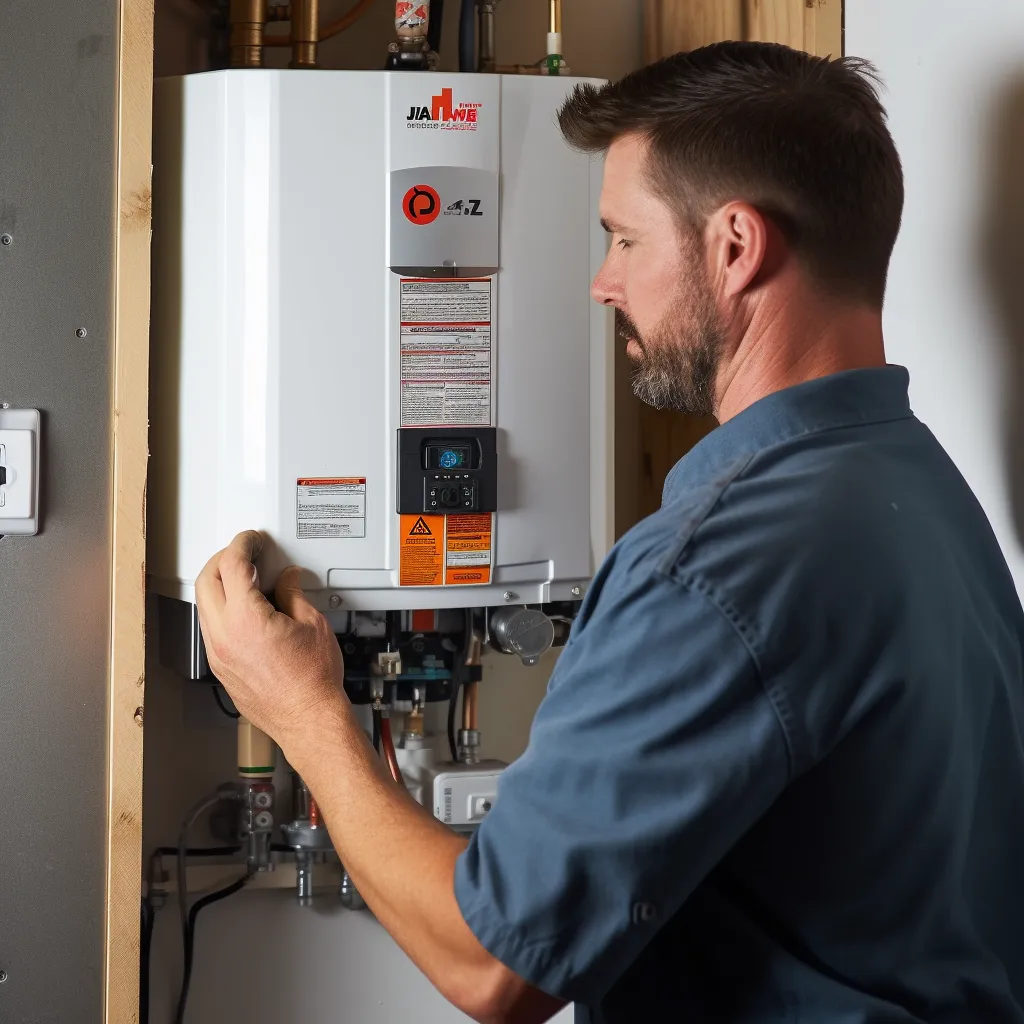
Tips on How to choose the right
water heater for your home
Selecting the appropriate water heater size is crucial for an efficient, comfortable living space. The expense of purchasing and running a water heater that is too small would lead to a lack of hot water. Similarly, an excessively large water heater would not only be expensive, but also occupy a significant amount of space. To determine the right water heater size for your family's needs, consider your lifestyle and daily usage. Selecting the appropriate water heater size results in affordable home comfort and a sufficient supply of hot water.
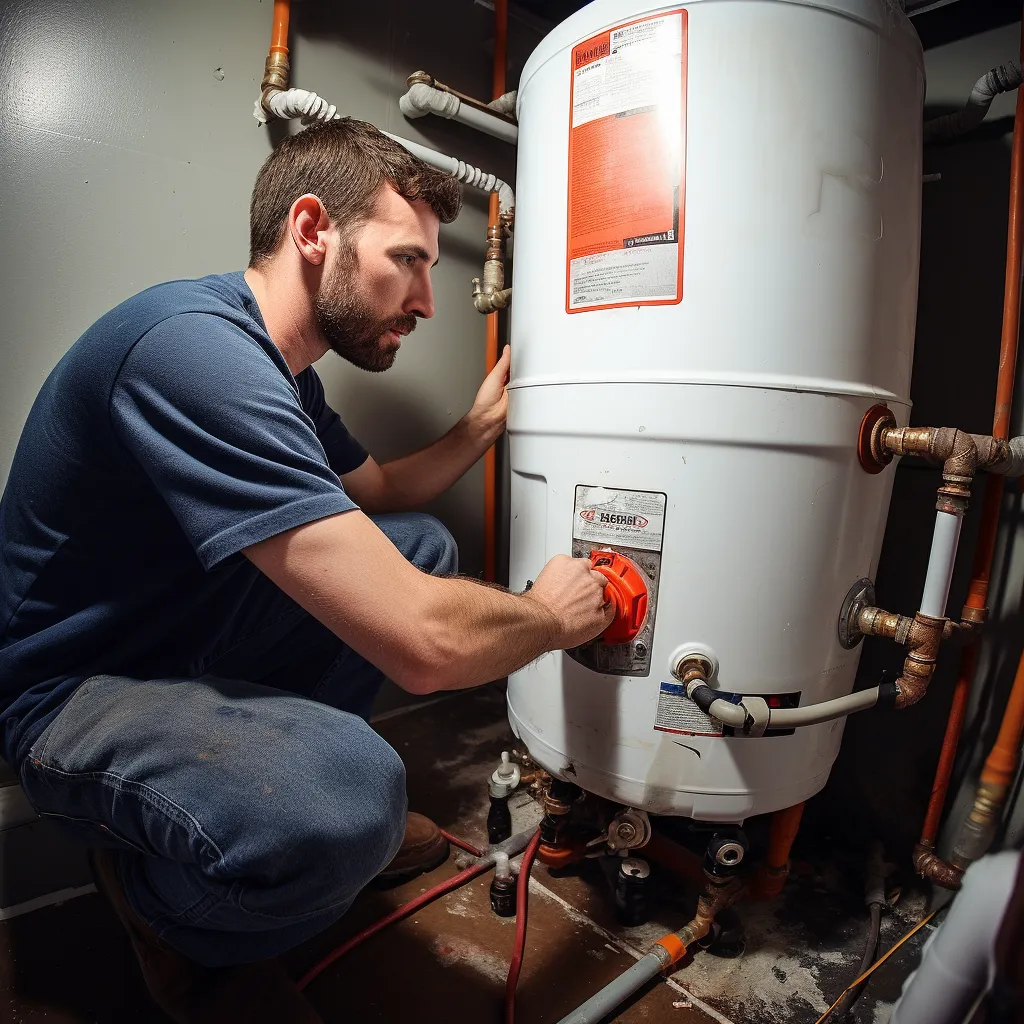
When should you
replace your water heater?
Your home's plumbing system relies on a well-functioning water heater, which heats water for your shower, dishes, and laundry. Typically, water heaters last around 10-15 years. If your heater has already reached this lifespan, it is best to consider investing in a new one.
Here are other signs that could mean it's time to get a new water heater:
Tank leakage.
Strange noises coming from the water heater.
Discolored and rusty hot water.
Lack of hot water.
Fluctuations in water temperature.
High energy bills.
It's crucial to seek advice from a licensed plumber to evaluate and discuss options if you encounter problems with your water heater. The expense of installing a new unit can be significant, but the long-term savings in energy efficiency and reliability make it an investment worth considering.
Maintenance tips for maximum
water heater efficiency
Ensuring maintenance of your water heater can prevent disappointments. To maintain efficiency and keep bills low, flush the tank frequently, to remove any sediment buildup. In addition, inspect the anode rod, check the pressure relief valve, and keep the area around the heater tidy. Following these straightforward routines ensures affordability and longevity of your water heating device while spoiling yourself with warm showers.
Benefits of hiring a licensed plumber
to replace your water heater
When contemplating whether or not to replace your water heater, it may be alluring to carry out the task yourself. Nevertheless, hiring a professional presents numerous benefits that you shouldconsider.
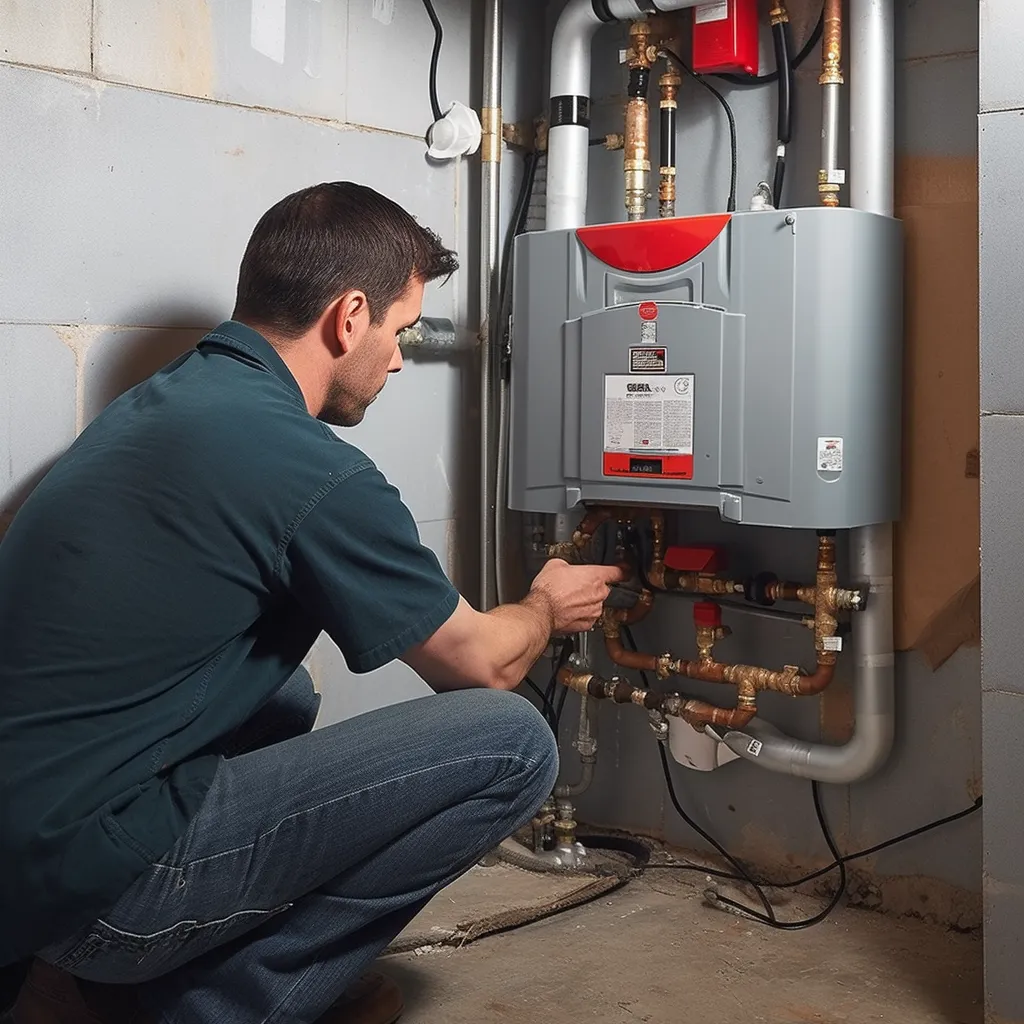
Skilled water heater experts possess the necessary training to install a new water heater safely and efficiently
Licensed plumbers keep up with local building codes
In case any issues arise during installation, entrusting the work to a pro can help
These professionals have all the required tools
Hiring a licensed plumber to replace your water heater can save time, money, and headaches.
Ready to Solve Your Plumbing Needs?
For reliable, expert plumbing services tailored to the needs of Malden and its neighboring cities, look no further than Water Heater Genies. We’re here for you 24/7, ensuring that your plumbing is always in top condition.
Call us today to schedule your service!
Business Hours: Monday - Sunday, 24 Hours
Phone Number: (781) 679-1733
Location: Malden, MA serving all surrounding areas.
Trust your local experts at Water Heater Genies for professional, timely, and efficient plumbing solutions.
GET IN FULL TOUCH
PHONE: (781) 679-1733
EMAIL:
marcus@waterheatermalden.com
Water Heater Genies
Malden, MA 01248
